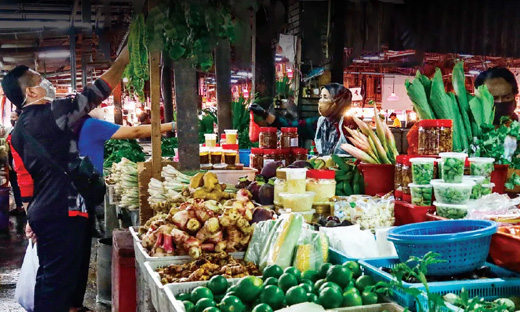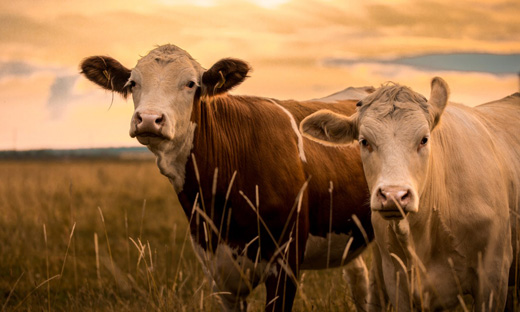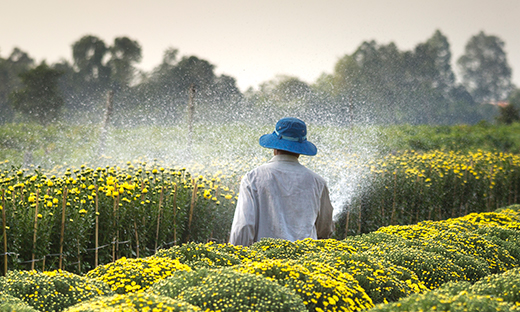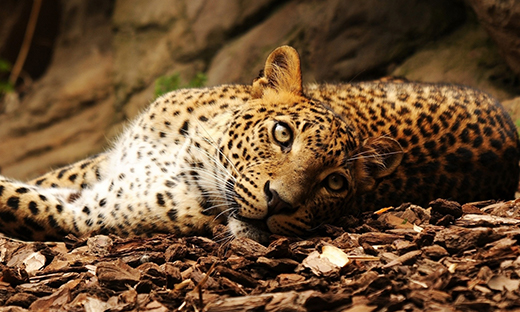Farming go hand in hand
Find out about the hard work Malaysian farmers do to feed the nation while also maintaining high animal welfare
standards, protecting the economy and contributing to the Malaysian economy.
Contributing to economy

Agriculture is one of the key sectors in Malaysia’s economy, accounting for about 8% of the GDP and 10% of the employment. Agriculture also provides income, livelihoods and rural development for millions of Malaysians, especially the poor and vulnerable. Agriculture also helps to diversify the economy, reduce dependence on imports, save foreign exchange and create value-added products and services.
Feeding the nation

Agriculture is essential for ensuring food security and nutrition for the population. Agriculture produces a variety of crops, livestock, fisheries and forestry products that meet the dietary needs and preferences of Malaysians. Agriculture also helps to improve food quality and safety, reduce food waste and loss, and increase food availability and accessibility.
Animal health and welfare

Agriculture is responsible for ensuring the health and welfare of animals that are raised for food, fibre or companionship. Agriculture follows the animal welfare standards and guidelines set by the government and international organizations, such as the World Organisation for Animal Health (OIE). Agriculture also adopts good animal husbandry practices, such as providing adequate shelter, food, water, veterinary care, hygiene and handling. Agriculture also promotes responsible pet ownership and animal welfare education among the public.
Contributing to Nature

Agriculture is proud of its contribution to nature, as Malaysia is one of the most biodiverse countries in the world, with rich and unique ecosystems such as rainforests, mangroves, coral reefs and peatlands. Agriculture supports nature by preserving and enhancing these ecosystems, which provide valuable services such as carbon sequestration, water purification, flood control, soil fertility, pollination and recreation. Agriculture also participates in nature conservation initiatives, such as the Convention on Biological Diversity (CBD), the Ramsar Convention on Wetlands, and the Heart of Borneo project.
Protecting the environment

Agriculture is committed to protecting the environment and natural resources that are vital for human well-being and sustainability. Agriculture adopts sustainable agriculture practices, such as using organic or integrated pest management, reducing chemical inputs, conserving soil and water, enhancing biodiversity and ecosystem services, mitigating greenhouse gas emissions and adapting to climate change. Agriculture also participates in environmental conservation initiatives, such as reforestation, wildlife protection and ecotourism.
Care of Natural Ecosystem

Agriculture is aware of the importance and interdependence of the ecosystem of nature that supports life on Earth. Agriculture respects and protects the ecosystem of nature by maintaining natural forest cover, restoring degraded forest landscapes, sustainably managing forest resources, enhancing wildlife habitats and corridors, and supporting biodiversity conservation efforts.
Wild Animals and Vets

Agriculture is concerned about the health and welfare of wild animals that share the land and resources with domestic animals. Agriculture cooperates with wildlife vets and conservationists to monitor, treat and prevent diseases and injuries among wild animals, rescue and rehabilitate injured or orphaned wild animals, relocate or translocate conflict or endangered wild animals, and conduct research and education on wildlife health and welfare issues.